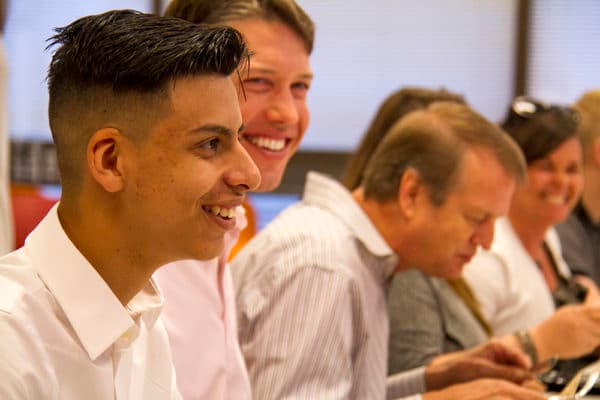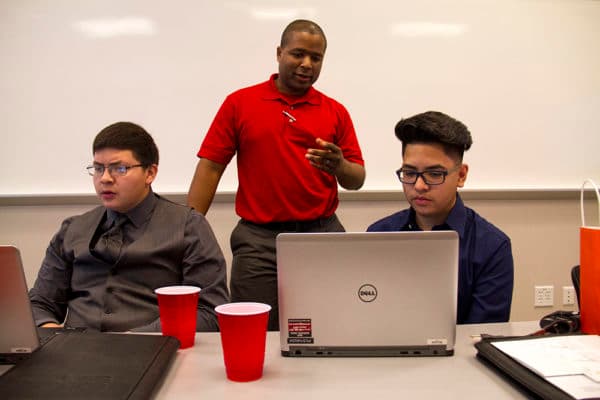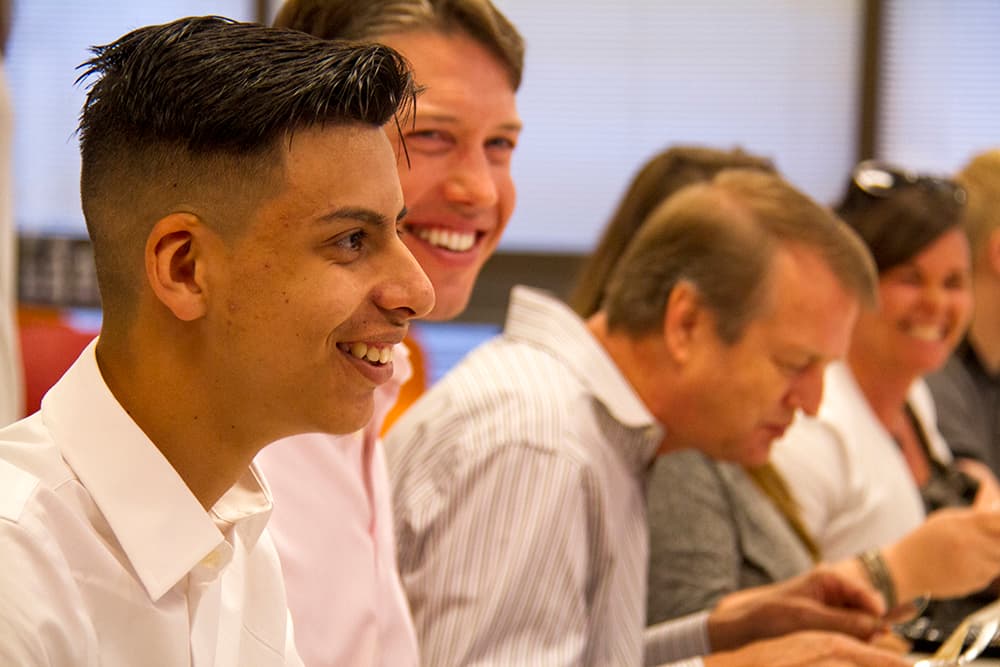
Colorado's fastest growing industries are increasingly looking for their next employees in Denver high schools.
Community colleges have long been a first stop for employers in need of workers, but retiring employees and rapid demand is pushing healthcare, manufacturing and other industries to connect with younger students.
Denver Public Schools is striving to become a national model in meeting industries' needs and preparing students for the workplace through its CareerConnect program.
"It’s so critical to reach our students at the high school level. By college, they’ve already made the decision of what they want to do," says Karis Morrall, external relations coordinator for DPS' CareerConnect programs.
During the last three years, the school district reports raising $8.3 million in grants to bolster the program. Through CareerConnect, DPS partners with more than 160 companies and organizations to get students engaged in hands-on work-based learning.
Denver-based oil and gas company QEP Resources is one of the partners offering students worksite tours and mentoring.
"Our industry is one of busts and booms, but we take the long view on oil and gas," says Shanda Vangas, community investments and partnerships manager at QEP. "We need to be prepared to have the right talent for when oil and gas activity increases."
Last week, QEP welcomed four student interns as part the CareerLaunch Internship Program that DPS launched this summer.
At least one of the interns, incoming high school senior Raul Valenzuela, does plan to enter the energy sector in the future.
Valenzuela hopes to attend Colorado School of Mines in Golden to become a petroleum engineer. The 17-year-old didn't always set his education goals so high.
"If it wasn't for my (CareerConnect) mentor, I'd probably still be on the streets hanging with the wrong crowd, taking the wrong steps and not caring about school," he says.
DPS plans to get more than 8,000 students like Valenzuela in career and technical education programs by the 2017-2018 school year. If the district is successful, the number of students being trained to enter the workforce or pursue certain career paths would double from the 2013-2014 level.
The push to enroll more students in CareerConnect programs is tied to a goal to improve graduation rates within DPS. During the 2014-2015 school year, 65 percent of students graduated on time and 1,770 dropped out.

"Kids show up to these (CareerConnect) classes when they don't show up to other classes in the same school day," says Joe Saboe, director of DPS' CareerConnect.
In 2013, DPS found that students who took three or more CareerConnect classes were 41 percent more likely to graduate than their peers.
Saboe says CareerConnect is less about pushing graduates from classrooms to companies and more about giving students the skills they need to pursue certain sectors.
"One of the places I grew up was Appalachia where they were training kids for the Toyota plant. If the Toyota plant folds, they're out of luck," he says. "The model we're pursuing is sector-based. You learn defined competencies, and you're prepared for a sector so if one company folds you still have great opportunities."
DPS' educational model is not that different from the Community College of Denver's approach.
"For career and technical education, the goal is people will find a job when they get a certificate or degree," says Christopher Budden, dean of CCD's Center for Career & Technical Education.
Budden says he'd like to see students complete programs at CCD, but encourages students to take the jobs they want when they can get them whether that's one semester in or after completing a program.
DPS says it's not encouraging anyone to leave high school for work. CareerConnect also isn't intended to be an alternative path to higher education.
"In our society, career and technical education is often perceived as an option for kids who aren't inclined to go to college or who aren't ready for college," Saboe says. "There's not a single kid who I would tell, 'You shouldn't go on to a four-year college.'"
"We just need to create multiple pathways for them to get there including workforce readiness, workforce credentials, two-year colleges, residencies and all those sort of things."
Business & data reporter Adrian D. Garcia can be reached via email at [email protected] or twitter.com/adriandgarcia.














